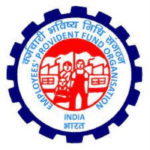The bigger an organisation, the more the processes and hierarchies there will be within it. During the startup phase, the teams are small, processes are linear and communication is faster. However, as the company grows, the team expands. Growing teams means slower decision making. In fact, an American study shows that larger organisations score a very poor D grade when it comes to decision-making. Why? Because as companies grow in scale, they waste more time in organising meetings, indulging in chats, and analysing, which takes away from actual action-oriented tasks.
It is also a fact that business is all about social interactions. A research suggests that a single person can only maintain relationships with up to 150 people in his lifetime. Even though a large organisation’s quality of decision making improves and becomes more accurate with growth, its overall efficiency in terms of making fast decisions decreases.
What exactly is it that makes even the process of obtaining an approval for leave so cumbersome and time consuming in certain organisations?
Hierarchical and rigidly process-oriented organisations fall behind when it comes to the pace of decision making for various reasons.
One reason is that there is no single decision maker. Many cultures have an autocratic leadership model where a single person takes all decision. Since for many things you need approvals, the decision making process gets delayed.
“There is immense competition, and the entry of startups has changed the game further, forcing the older setups to pull up their socks for fear of being left behind”
Praveer Priyadarshi, former CHRO, Jindal Stainless
However, processes exist in the big private companies and multinationals of the world too. Then how is it that they score better in terms of faster and more efficient decision making than PSUs?
HR leaders and experts agree that processes do slow down companies, but they also point out that now things have changed.
Empowerment
“Companies need to have processes to operate and do business. However, there has to be a democratisation of decision-making powers,” says VDV Singh, vice president, JK Cement.
In other words, people have to be empowered to take certain decisions at their own level. Everything should not go to the top brass for approvals or recommendations. This what really differentiates a lean and empowering company from a process- driven one.
In a Government-owned company, all decisions are taken by a committee of four to five people, whereas in an MNC a single person is authorised to take a call on certain matters on in his own.
Reduction of processes
As Singh rightly says, “Many a time, there are multiple layers of processes and a tendency to get carried away with these. We need to cut down on those layers and attempt to be leaner,” asserts Singh.
Praveer Priyadarshi, former CHRO, Jindal Stainless, who has worked in brick and mortar setups as well as MNCs, believes that many of the old-school and traditional-sector companies have changed themselves in a big way. The process levels have been reduced, thanks to the mounting competition in the market. “There is immense competition, and the entry of startups has changed the game further, forcing the older setups to pull up their socks for fear of being left behind,” says Priyadarshi.
Implementation of technology
Another major change that older companies have undergone is that they have implemented technology and embraced automation. The pandemic only accelerated this, forcing organisations to digitise their processes. However, introducing technology is not the only solution. To increase the speed of processes, it is also essential to have a digital mindset and culture.
“Companies need to have processes to operate and do business. However, there has to be a democratisation of decision-making powers”
VDV Singh, vice president, JK Cement
“Technology is just an enabler in making processes leaner and faster. It is the people, especially the leaders, who have to bring about a change in the mindset that has been built in companies over the years,” asserts Priyadarshi.
For instance, many companies use data analytics to make certain decisions and take calls. However, developing a mindset to trust that data and insight and coming up with innovative ideas using that data is something that only the people can do.
The consequences of slow decision making and an obsession with unnecessary formalities can be fatal for any organisation. From the commercial point of few, there is no dearth of players in the market waiting to take advantage, grab opportunities and capture the market. The emergence of smaller startups with leaner teams has only added to the list of challenges for the older companies.
A slow pace in the organisation, especially in terms of decision making can have repercussions on the people front too. The attitude of employees will remain laid back and their intent to go for the kill will eventually die. This will further result in loss of opportunities and create a slog culture.
Value our content... contribute towards our growth. Even a small contribution a month would be of great help for us.
Since eight years, we have been serving the industry through daily news and stories. Our content is free for all and we plan to keep it that way.
Support HRKatha. Pay Here (All it takes is a minute)




































